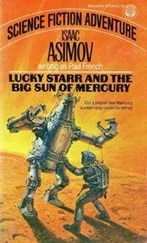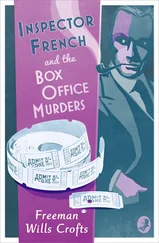Jerry Pinto - Em and the Big Hoom
Здесь есть возможность читать онлайн «Jerry Pinto - Em and the Big Hoom» весь текст электронной книги совершенно бесплатно (целиком полную версию без сокращений). В некоторых случаях можно слушать аудио, скачать через торрент в формате fb2 и присутствует краткое содержание. Год выпуска: 2014, Издательство: Penguin Books, Жанр: Современная проза, на английском языке. Описание произведения, (предисловие) а так же отзывы посетителей доступны на портале библиотеки ЛибКат.
- Название:Em and the Big Hoom
- Автор:
- Издательство:Penguin Books
- Жанр:
- Год:2014
- ISBN:нет данных
- Рейтинг книги:3 / 5. Голосов: 1
-
Избранное:Добавить в избранное
- Отзывы:
-
Ваша оценка:
- 60
- 1
- 2
- 3
- 4
- 5
Em and the Big Hoom: краткое содержание, описание и аннотация
Предлагаем к чтению аннотацию, описание, краткое содержание или предисловие (зависит от того, что написал сам автор книги «Em and the Big Hoom»). Если вы не нашли необходимую информацию о книге — напишите в комментариях, мы постараемся отыскать её.
Em and the Big Hoom — читать онлайн бесплатно полную книгу (весь текст) целиком
Ниже представлен текст книги, разбитый по страницам. Система сохранения места последней прочитанной страницы, позволяет с удобством читать онлайн бесплатно книгу «Em and the Big Hoom», без необходимости каждый раз заново искать на чём Вы остановились. Поставьте закладку, и сможете в любой момент перейти на страницу, на которой закончили чтение.
Интервал:
Закладка:
So all we had was Em’s word.
‘You won’t do anything silly?’ The Big Hoom would ask her before he left in the morning.
‘No,’ she would say and her voice would sometimes be a sick moan. ‘No.’
He would hug her and for a moment, her brow would clear, but soon he had to be gone and she would be shivering and hugging herself and asking for another Depsonil or death or a beedi. Even smoking was not a pleasure on her bad days. She would inhale deeply as if looking for something in the first fumes and when she did not find it, the despair would be back. The surcease was for a second only and after a couple of puffs, she would drop the beedi, literally drop it, sometimes burning her clothes, often letting it extinguish on the floor. The good thing about beedis is that they go out almost immediately.
Held by a single ‘No’ and by those beedis, she would wait for him to return. When he did, she would immediately ask for release.
‘Kill me.’
‘I might go to jail,’ he would say patiently. ‘Do you want that?’
‘No,’ she would say, but her voice would hold no real belief. She did not care one way or another. I remember the hurt I felt when he tried another tack once.
‘I might go to jail,’ he said, ‘and who would look after the children?’
‘I don’t know,’ she said and she didn’t have to add, ‘I don’t care’. Both Susan and I knew it was the subtext. It was easy to forgive; we could see how much pain she was in. It was not easy to forgive; her pain sealed her off from us.
But how did The Big Hoom forgive? How did he hold on?
10. ‘All is Discovered. Let us Flee.’
When Em and The Big Hoom set forth on their new conjoined life, the Republic was relatively young and its coffers were empty. Salaries were low, prices were high and the middle class was expected to do its bit by saving as much as it could. Taxes were high and given the foreign exchange regulations and the exchange rate, no one thought of going abroad.
And yet, from all that I could gather, they had been happy. Improbably happy. Their world was clearly vulnerable, as if everyone was walking a tightrope over a smoking volcano. The ship of state could have foundered anytime, and repeatedly, plunging them into an abyss of debt. But none of that seems to reflect in their small black-and-white pictures of the time. Most of the pictures are pretty standard, taken at office parties, the occasional picnic and church weddings. Some, however, are odd: Em trying to smile in a silk sari; The Big Hoom at his desk in the office.
Who could have thought of taking that latter picture? It wasn’t as if there were instamatic cameras in every purse or pocket. Film was rare and often had to be bought on the black market. You didn’t just take a picture. You composed it with care. And that meant you took the kind of picture that everyone else was taking. This kind of picture, man at desk in office, isn’t the kind I have seen in many other people’s albums. Perhaps it has something to do with my father being the first generation of office workers in a family of peasants. It might well have been taken as a way of proving something to the village.
Those pictures tell a story. Imelda and Augustine were part of the dosa-thin middle class of the 1960s. They dressed like other young middle-class Indians of their background, they went to work in respectable, stable establishments and socialized in respectable, stable places. They also did their duties. They opened postal savings accounts and recurring deposits, put aside money for medical emergencies, bought units from the Unit Trust, had babies.
Susan was born two years into the marriage. I could not believe they had had the courage.
‘Why would it take courage? I wasn’t mad then,’ said Em.
‘Not that. Just the expense.’
‘It wasn’t expensive, because it wasn’t a luxury. You got married. You had children. This was assumed. This was what people did. If you didn’t do it, it was because you had a problem and people began to suggest adoption. We didn’t buy a car because that would have been very expensive.’
Em had no recollections of being pregnant.
‘I don’t remember feeling much until I couldn’t get into a rather nice pink skirt I had. Then I thought, “Oh, that’s the baby,” and wondered if I should give up working and all that. One cigarette later, everything was fine.’
‘You were smoking when you were pregnant?’
‘And did it harm you? Or Lao-Tsu? Not as far as I can see. You were a big fat lump and my poor vagina was never the same, though Il Santo never complained.’
‘Em.’
‘It’s true. Natural birth was all the thing and the whole ward at St Elizabeth’s was filled with women in pain. “Nurse, give me another Miltown,” an Anglo-Indian lady would moan every ten minutes from the next bed.’
‘They gave her sedatives?’
‘Oh no, they didn’t, the dirty bitches. They thought you should suffer. I remember a priest coming in on Sunday and reading out of the Genesis. It had to do with Adam and Eve and their apple. Apparently, we were supposed to suffer. Birth was supposed to be painful and we were suffering in expiation of Eve’s sin. Adam got away, of course. Men do.’
The Book of Genesis is quite clear on the subject. The Lord God himself weighs in with ‘I will greatly multiply thy sorrow and thy conception; in sorrow thou shalt bring forth children.’ When anaesthesia was invented, the Church ranged itself against the use of painkillers in the maternity ward. That would be going against the curse of God Himself. It took Queen Victoria’s insistence on a squirt of nitrous oxide, before doctors — and mothers too — decided that it wouldn’t be a bad thing to lessen the worst pain known to humankind.
‘My story sort of ends there,’ Em said. ‘What’s to tell about the rest? You came along and I became a Mudd-dha.’
That word again. That venom. Maybe they should have thought about it, not just had a child because everyone did.
‘I didn’t think it was such a big deal. I don’t know if LOS felt the same way about becoming a Dad. Not that he wasn’t a complete seahorse. I don’t think a man could have been happier when he had his first child. And then when the second one came along…’
Me.
‘… he was over the moon. Then I slung my lasso at him and dropped him down to earth. But he took that in his stride as well. I told him, “Put me away.”’
I remember one of the many days on which she had made the plea.
There was an account in the dim grey bank down the road, the cheque book locked up in the Godrej cupboard which sang and creaked whenever anyone tried to open it — ‘Our built-in burglar alarm,’ Em called it. The account was operated by Em and The Big Hoom, and it was money to be used ‘in an emergency’. We knew without being told what ‘emergency’ meant: something happening to The Big Hoom. It was sacred money because, to Susan and me, at least, it carried the terror of being alone in the world. It was the worst possible nightmare we could conceive because we had no idea what we would do if we had to do it all on our own: monitor her pills, decide when she went to hospital, hold on to her life with a daily promise, pay her bills, take her raging or desperate calls, earn a living.
And one day, the truth came out.
From time to time, The Big Hoom would make Susan and me sit down and try to understand how the world of money worked. He would talk us through the notion of the stock market and the interim dividend, the public provident fund and the fixed deposit. He would make us fill out an application form for a bank loan or for the initial public offering of a company. It was his way of trying to prepare us for a world without him. The last step of this would be an explanation of the bank accounts: what was where and how it was to be used. He would explain about capital and running expenses and the need to forecast our expenses. He would show us how he did it, with a large heading called ‘Imelda’ under which he placed forty per cent of the annual income.
Читать дальшеИнтервал:
Закладка:
Похожие книги на «Em and the Big Hoom»
Представляем Вашему вниманию похожие книги на «Em and the Big Hoom» списком для выбора. Мы отобрали схожую по названию и смыслу литературу в надежде предоставить читателям больше вариантов отыскать новые, интересные, ещё непрочитанные произведения.
Обсуждение, отзывы о книге «Em and the Big Hoom» и просто собственные мнения читателей. Оставьте ваши комментарии, напишите, что Вы думаете о произведении, его смысле или главных героях. Укажите что конкретно понравилось, а что нет, и почему Вы так считаете.











